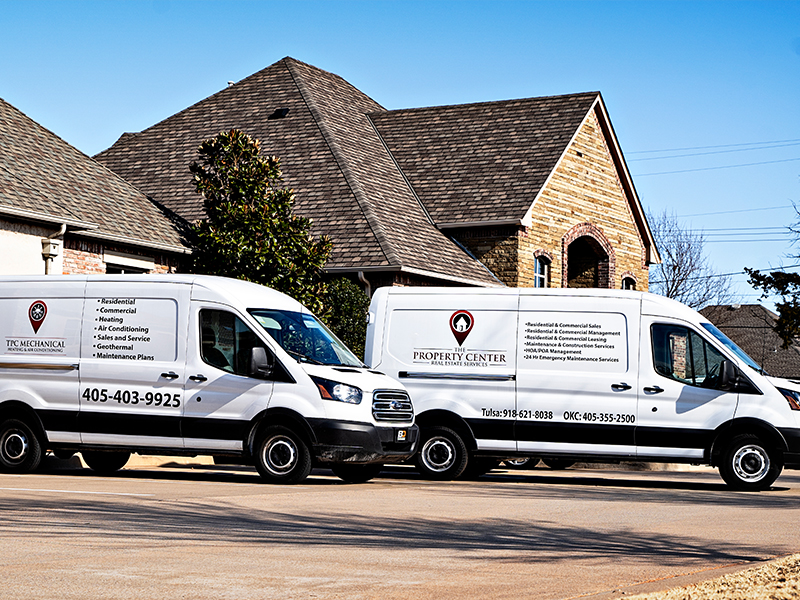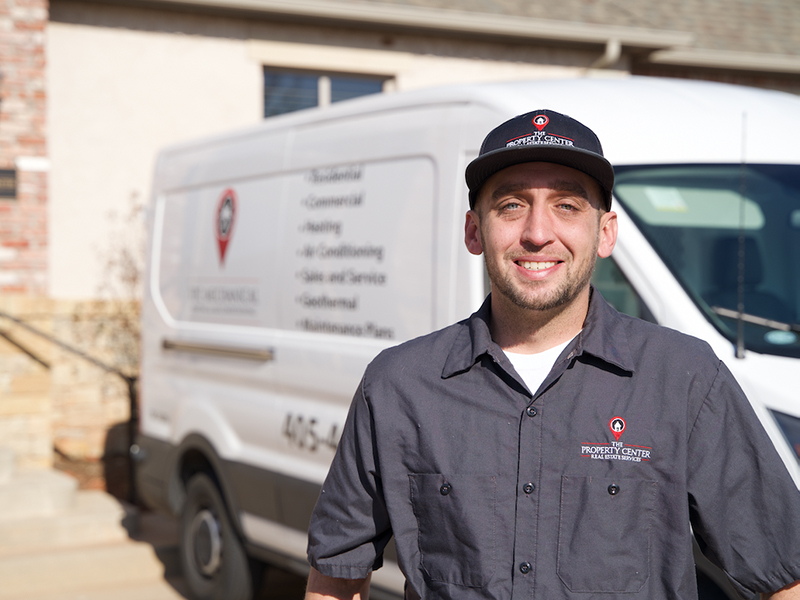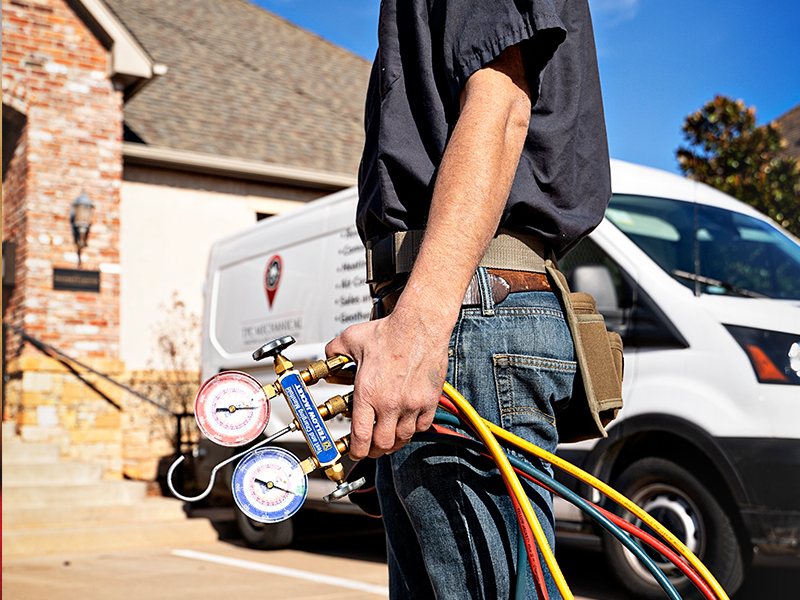Heat pumps can work for heating or cooling your home, and they are more energy-efficient than most other heating systems since they do not use energy to generate heat. Instead, they move heat from the inside of your house to the outside, or the other way around, depending on whether you have them set for cold weather or hot weather.
Even though they are a bit more expensive to purchase and install, the energy efficiency and electricity savings make them a very attractive choice. Good for cooling and heating in all but the most extreme winters, heat pumps are an alternative to furnaces that you should definitely consider.
Heat naturally travels from a warmer space to a cooler one, but heat pumps reverse this flow, to move heat from the cooler space into the warmer space. It sounds hard to understand, but if you think of your fridge you will see that it works the same way: using a special chemical called refrigerant” it extracts heat from inside your freezer (where it is already quite cold) and releases it outside, where it’s warmer.
Now imagine your house as a gigantic fridge. In the warm months, the heat pump takes the heat from the air inside the house and releases it outside, keeping your home cooler like air conditioning would. In the cool months, the fridge is reversed inside out, and the heat pump transfers heat from outside into your home, keeping you toasty and comfortable.
Heat pump systems use power only to transfer the heat from one place to another. This makes their energy requirements really low, and because of it, their efficiency ratios are off the charts when you compare energy input with heating output. We’ll go over this a bit later on.

There are three main types of heat pumps: air-to-air, geothermal, and water-source. Let’s dive into each of them.
Of all heat pumps, air source is the most common heat pump systems in the United States. They do what it says on the box: transfer heat between the air inside your house and the air outside. Air source heat pumps can work as both a heating and cooling system, reducing your electricity consumption by 50% compared to electric furnaces, for great energy savings.
High-efficiency heat pumps have an added plus when used as cooling systems during the hotter months of the year instead of traditional air conditioners: humidity control. When used for cooling, they reduce humidity much better than your standard AC unit, which saves energy and increases comfort in your home.
Geothermal heat pumps use the Earth’s core to regulate your home’s temperature. That sounds really fancy, but in fact, it works on a simple principle: while temperatures in the surface, where we live, vary a lot over the year, the temperature a few feet underground is remarkably steady.
Ground source heat pumps rely on a set of buried tubes (known as the ground loop) to tap into that steady temperature to heat or cool your house. If you’re interested in geothermal heat pumps, you’re in luck: we wrote about them in detail in this blog post. The geothermal system is very clean, especially compared to a gas furnace or other heating systems that burn fossil fuels.
Water source pumps need access to a body of water, so you can only install one if you live near a lake, a well, or something similar. If you do, you’re in for a treat, because water source pumps are as clean and efficient as air-to-air ones. They have the added benefit of working much better in very cold weather – while air source heat pumps lose efficiency in sub-zero temperatures, water maintains its temperature much better than air, so it can keep you warm during the coldest days.
The water source heat pump makes water circulate from the bottom of the lake through pipes and then back out, using it to cool or heat your home, according to the season. This process is so clean, the water is released back into the lake at the end of the cycle, totally free from contamination.

The simplest way to understand the energy efficiency of cooling systems (and heating systems, of course) is to compare how much electricity they use vs. how much they put out in terms of cooling or heating power.
Fuel-based furnaces can be cheaper to operate, because of the price of gas or oil, but they are not the most energy-efficient systems around. High-efficiency furnaces have an AFUE of about 90%, meaning that 90% of the fuel turns into heat, and the remaining 10% is expelled in the shape of exhaust. Standard gas furnaces have efficiency rates closer to 80% though, meaning 20% of the gas is effectively wasted instead of becoming heat for your home.
Electric furnaces are perfectly efficient: 100% of the energy that goes into them is converted into heat. But if you think this is as good as it gets, you are underestimating heat pumps.
The heating efficiency of a heat pump is measured with a coefficient of performance (COP), while its cooling energy efficiency is expressed with the energy efficiency ratio (EER). But names aside, the really interesting thing is that both COP and EER tend to be greater than 1. In fact, typical home heat pumps average something between 2 and 4.5, which means they produce 2 to 4.5 times more heat than the energy they use to run. Heat pumps actually multiply the energy they use and turn it into greater amounts of heating or cooling power. And they save even more if you use the variable speed kind.
You don’t have to take our word for it – many heat pumps are Energy Star certified, and according to the Energy Star website this means that “ENERGY STAR certified heat pumps have higher ratings for seasonal energy efficiency ratio (SEER), energy efficiency ratio (EER), and heating seasonal performance factor (HSPF) and use about 5% percent less energy than conventional new models.”

Whatever HVAC system you choose to use, maintenance and periodic revisions are key to keep it working at peak efficiency and to prevent costly repairs. Heat pumps are no exception – a neglected heat pump can consume 10% to 25% more energy to achieve the same results. Proper maintenance is your friend.
Some of the checkups and maintenance jobs can be done at home, with no need to hire a professional. Note we said some – you will still need a yearly professional checkup to keep your heat pump in top shape.
These are some of the maintenance tasks you can undertake on your own:
Besides these easy home maintenance tasks, you should have a professional technician visit once a year to thoroughly service your heat pump. A technician has the training and the equipment to perform more thorough, detailed tests that can detect potential damage early on, saving you hundreds of dollars in repairs down the line.
A typical professional inspection should include most of the following:
Your choice of heating and cooling system will depend on many factors: what is available in your area, what the temperature ranges are, your upfront budget, and how much you are willing and able to spend on an ongoing basis on your heating and cooling bills. Whatever your choice, you can count on our expert technicians to advise you and answer your questions. Whether you are seeking to install a new unit, change an old one, give periodic maintenance or repair a fault, you can count on us.